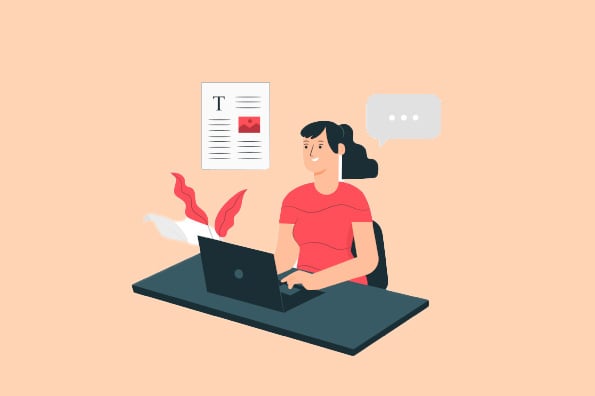Legal Considerations for E-Commerce Sites: Protecting Your Business Online
Setting up an e-commerce website requires more than just technical know-how and marketing savvy; there are several legal considerations you must take...
4 min read
LegalGPS : Oct. 15, 2024
If you create and sell digital products, such as e-books, courses, software, or downloadable content, it's crucial to protect them with the right legal agreements. Digital products are particularly vulnerable to unauthorized use and distribution, making it essential to establish clear rules and protect your intellectual property. In this blog, we’ll explore the key agreements you need to protect your digital products and your business.


Legal GPS Pro
Protect your business with our complete legal subscription service, designed by top startup attorneys.
A Licensing Agreement is one of the most important tools for protecting your digital products. This agreement allows you to grant users permission to use your digital content while specifying any restrictions. It clearly defines what the customer can and cannot do with your digital product.
Why This Matters: Licensing Agreements ensure that users understand that they are buying the right to use your product under certain conditions, not ownership of the product itself. This helps protect your content from unauthorized distribution or misuse.
Example: If you sell an online course, your Licensing Agreement might specify that customers can only access the course for personal use and cannot resell or share the content with others. This limits unauthorized distribution and protects your revenue.
A Terms and Conditions Agreement sets out the rules for users who purchase and use your digital products. This agreement provides clarity on issues like refunds, limitations on use, and dispute resolution.
Why This Matters: Terms and Conditions help manage customer expectations, reduce disputes, and limit your liability. They ensure that customers know what to expect from your digital products and the conditions under which they can use them.
Example: Suppose a customer purchases your downloadable e-book and demands a refund after they have already accessed the content. Your Terms and Conditions could specify a no-refund policy for digital downloads, protecting your business from financial losses.
A Copyright Notice is a simple but effective way to inform users that your digital product is protected by copyright law. This notice should be prominently displayed on your product to discourage unauthorized copying or distribution.
Why This Matters: A copyright notice serves as a deterrent to potential infringers and provides a basis for taking legal action if someone violates your rights. It makes it clear that your content is your intellectual property.
Example: Including a copyright notice at the beginning of your e-book or in your software interface signals to users that copying, distributing, or modifying your content without permission is prohibited.
Sales Tax Obligations for E-Commerce
An End User License Agreement (EULA) is specifically used for software and similar digital products. It grants users a license to use your software under certain conditions and places restrictions on how they can use it.
Why This Matters: A EULA allows you to retain ownership of your software while giving users the right to use it. It also helps limit your liability and prevent reverse engineering or unauthorized distribution.
Example: If you sell software for graphic design, your EULA can restrict users from sharing the software with others or attempting to reverse engineer it. This helps protect your intellectual property and prevents loss of revenue.
A Non-Disclosure Agreement (NDA) is important if you collaborate with contractors, freelancers, or partners to create your digital product. An NDA ensures that confidential information about your product, such as source code or content details, remains protected.
Why This Matters: If you’re working with developers, designers, or other collaborators, an NDA prevents them from sharing or using your confidential information without your permission. This keeps your product ideas and sensitive information secure.
Example: Suppose you hire a developer to help you build an app. Having the developer sign an NDA ensures that they don’t disclose your proprietary software code to a competitor or use it for their own projects.


Legal GPS Pro
Protect your business with our complete legal subscription service, designed by top startup attorneys.
Jude is a digital creator who sells online courses and downloadable guides through his website, Jude's Digital Academy. Early on, Jude learned how important it is to protect his digital products with proper agreements to prevent unauthorized use and safeguard his business.
Licensing Agreement: Jude used a Licensing Agreement to make it clear that customers were purchasing a license to access his online courses for personal use only. This prevented customers from sharing his course materials with others or using them commercially without his permission.
Terms and Conditions Agreement: Jude implemented a Terms and Conditions Agreement that outlined the rules for purchasing his courses and guides. It included a no-refund policy for digital downloads, which helped protect him from customers who tried to demand refunds after accessing the content. This clear policy helped reduce disputes and manage customer expectations.
Copyright Notice: Jude added a copyright notice to the beginning of each of his downloadable guides. This notice served as a reminder to customers that his content was protected by copyright law and could not be copied or distributed without his permission.
End User License Agreement (EULA): When Jude developed a software tool to help his customers plan their digital marketing strategies, he included an End User License Agreement (EULA) with each purchase. The EULA specified that users could not share the software with others or attempt to reverse engineer it. This helped protect Jude's intellectual property and ensured that his software was used only as intended.
Non-Disclosure Agreement (NDA): Jude hired a freelancer to help him create new content for his courses. Before sharing his course outlines and materials, Jude had the freelancer sign an NDA. This ensured that his proprietary content remained confidential and that the freelancer could not use or share the information without Jude's consent.
Thanks to these agreements, Jude was able to protect his digital products and focus on growing his business. By establishing clear rules and protecting his intellectual property, Jude ensured that Jude's Digital Academy continued to thrive while keeping his content safe from unauthorized use.
Protecting your digital products with proper agreements is essential for any digital creator. Licensing Agreements, Terms and Conditions, Copyright Notices, EULAs, and NDAs all play a crucial role in safeguarding your intellectual property and ensuring that your business runs smoothly. By taking the time to establish these agreements, you can protect your content, limit liability, and focus on what matters most—creating valuable digital products for your customers.
Need help drafting these agreements? Legal GPS provides customizable templates to help you protect your digital products and keep your business legally sound.
The biggest question now is, "Do I need a business lawyer?” For most businesses and in most cases, you don't need a lawyer to start your business. Instead, many business owners rely on Legal GPS Pro to help with legal issues.
Legal GPS Pro is your All-In-One Legal Toolkit for Businesses. Developed by top startup attorneys, Pro gives you access to 100+ expertly crafted templates including operating agreements, NDAs, and service agreements, and an interactive platform. All designed to protect your company and set it up for lasting success.

Legal GPS Pro
Protect your business with our complete legal subscription service, designed by top startup attorneys.

100+ legal templates, guides, and expert advice to protect your business.
Trusted by 1000+ businesses

Setting up an e-commerce website requires more than just technical know-how and marketing savvy; there are several legal considerations you must take...

In this blog, we’ll explore some of the most important legal issues developers face when creating an app, including intellectual property, privacy,...

1 min read
If you run a business with an online presence, you’ve likely come across a “Terms of Use” agreement. Also called Terms and Conditions (T&C) or Terms...